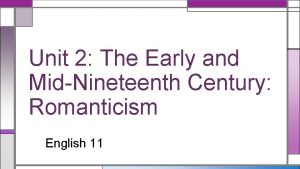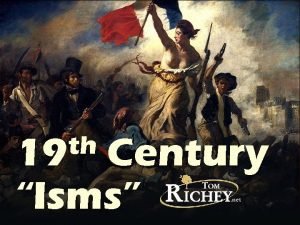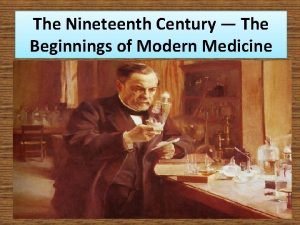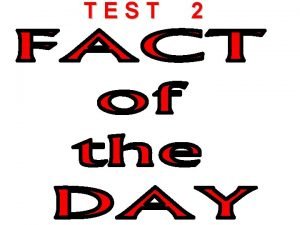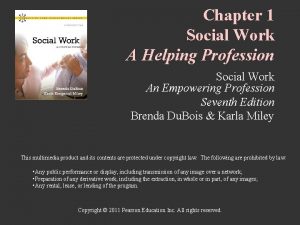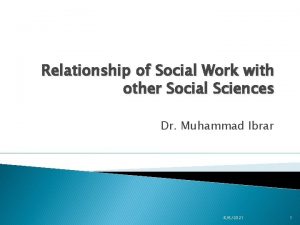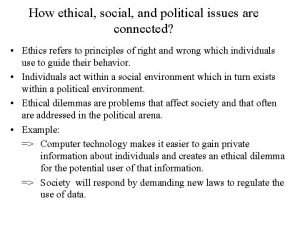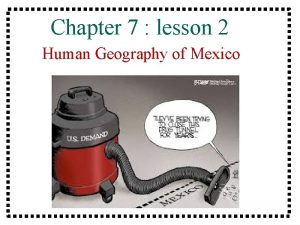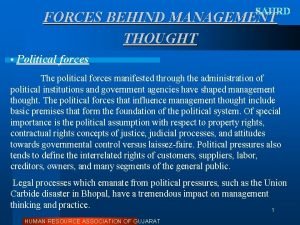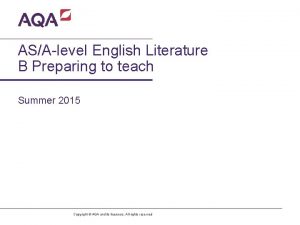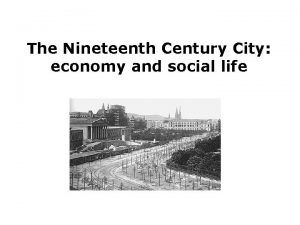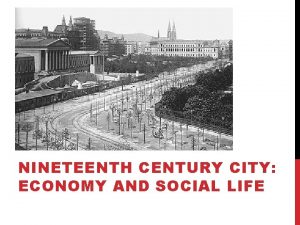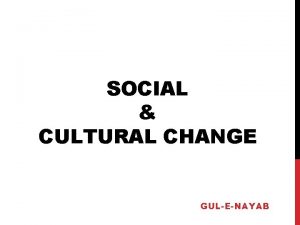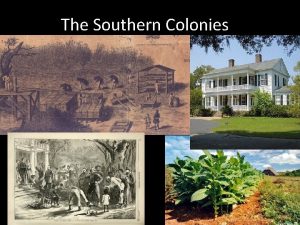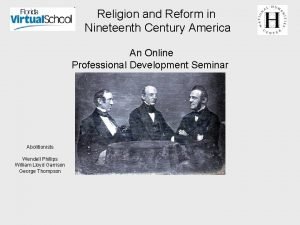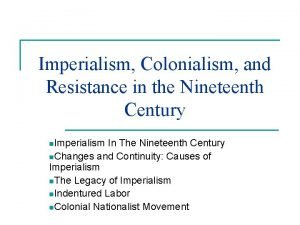Social and Political Change in Nineteenth Century Southern














- Slides: 14

Social and Political Change in Nineteenth. Century Southern Africa HI 177 | A History of Africa since 1800 Term 1 | Week 5 | Dr Sacha Hepburn



The Mfecane • From Xhosa ’destitution’ and ‘hunger’, also Sotho difaqane (‘scattering’) • Originated in the Nguni-speaking chiefdoms of southeastern southern Africa, late 18 th/early 19 th centuries • Limited resources > war > waves of migration > absorption of chiefdoms into larger states • Increasingly centralised and militarised leaderships • Refugees fled as far north as modern Zimbabwe, Malawi, and Tanzania • Displacement of peoples and depopulation in southern Africa

The Mfecane thesis Escalation of violence and population displacement in early C 19 th southern Africa resulted from of 3 factors: 1. Increased competition for land resources that began during the C 18 th 2. Increased competition between Nguni chiefdoms for the control of trade routes and access to ivory 3. Efforts of powerful and talented individuals like Shaka in leading these conflicts and founding new polities

The Rise of the Zulu Kingdom • Zulu became most powerful Nguni kingdom • Shaka became ruler of Zulu state by 1819 • New identity based on political and military power • Creation of permanent military regiments (ambutho) • Tactical innovation - short stabbing spear became predominant • Zulu were dominant power in region until British conquest (1879) • Model of Nguni kingdoms adopted by other states in region Shaka Zulu (1824)

http: //blog. londolozi. com/

Julian Cobbing: ‘The Mfecane as Alibi’ Julian Cobbing at ‘The Mfecane Aftermath’ Johannesburg, 1991

Cobbing’s Arguments 1. Disturbances in southern Africa not solely result of the emergence of the Zulu Kingdom 2. Root causes of violence and migrations lay in external, European causes • Rise of Delagoa Bay slave trade in Portuguese Mozambique • Afrikaner and British settlers and missionaries pursued slave-raiding, pushing Africans north 3. Mfecane as legitimating ‘modern apartheid propaganda’ • Mfecane as having no root in African language • Settlers justifying land grabs • Justifying the creation of African Bantustans

Cobbing’s Arguments in Context • 1948 -1994: a period of harsh racial segregation and discrimination in South Africa known as apartheid • 1980 s a period of political transformation and violence in South Africa with popular protest against apartheid regime • Cobbing’s arguments sparked controversy: • He downplayed role and agency of Africans in C 19 th South African history and emphasised role of European settlers • Political implications of such ideas – debates about history of colonialism, race and power

Criticising Cobbing 1 • Misrepresenting the evidence • Unproven hypotheses rather than empirical evidence? • Extensive slave trade at Delagoa Bay did not begin until after regional conflicts began in 1817 (Eldredge) • ‘Slave-raiding’ argument misreads evidence and lumps together too many diverse actors (Eldredge) • But how much evidence do Cobbing’s critics offer in response? • Misrepresenting the historiography • Does Cobbing caricature the existing historiography? (Saunders, also Peires)

Criticising Cobbing 2 • Etherington: was there even an mfecane to speak of? • Problem of Zulucentricity remains • Denying African agency? Perpetuating stereotypes of an undynamic precolonial Africa (Reid) • Africans developing concept of mfecane to further own interests, e. g. related lifaqane found in 19 th century texts Zulu regiments at Shaka’s kraal (1827)

Beyond the Cobbing Debate • Ecological factors • Land unable to support cattle farming without drastic reorganisation of productive forces (Guy) • Ivory trade • Decline around 1900 forced turn to cattle farming, leading to conflict over land centralisation of the state (Smith and Hodges) • Impact of drought (Eldredge) • Social developments • Role of women?

Conclusions • No consensus – demonstrates problem of monocausal arguments • Revitalisation of the debate on precolonial southern African history • Mfecane cannot be understood without reference to internal and external factors
 Post test the early and mid nineteenth century romanticism
Post test the early and mid nineteenth century romanticism Conservatism
Conservatism Chapter 4 notes fiber evidence
Chapter 4 notes fiber evidence Nineteenth century
Nineteenth century Horace taylor, the verdict, september 25, 1899
Horace taylor, the verdict, september 25, 1899 Social work: an empowering profession 9th edition chapter 1
Social work: an empowering profession 9th edition chapter 1 59 swans poem
59 swans poem Social thinking social influence social relations
Social thinking social influence social relations Social thinking social influence social relations
Social thinking social influence social relations Relationship of social work with other social sciences
Relationship of social work with other social sciences Packaging different products and services together
Packaging different products and services together How ethical social and political issues are connected
How ethical social and political issues are connected Guided reading activity lesson 2 human geography of mexico
Guided reading activity lesson 2 human geography of mexico Various forces behind management thought
Various forces behind management thought Aqa english literature b nea examples
Aqa english literature b nea examples
